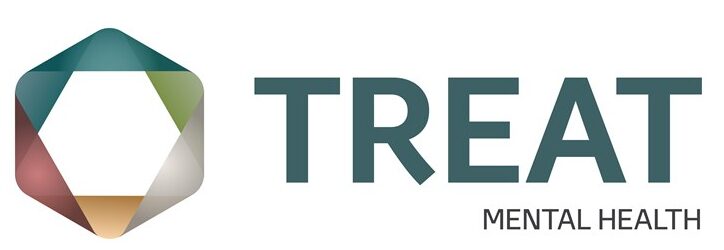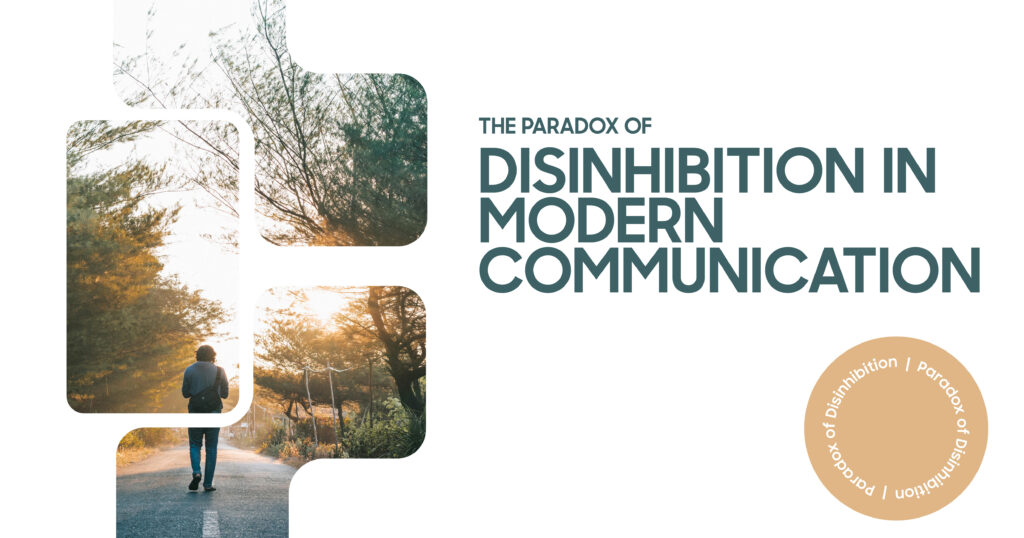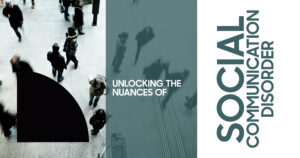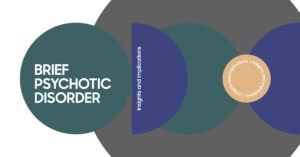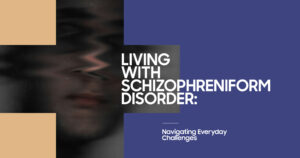During the digital era, communication has radically changed, and it presently has new possibilities of expression. But with these improvements, one thing has come out critically – disinhibition. However, the meaning of disinhibition in the context of modern communication is necessary. Disinhibition is doing something without thinking about the outcomes, or something one likes doing, or something an individual wants to do. Such conduct has both an affirmative and a negative effect on our interpersonal relationships and psychological health. This paper will discuss the psychology behind disinhibition, the effects of disinhibition on our behaviour, and its interaction with other aspects of mental health.
Definitions and Concepts Surrounding Disinhibition
It is said that the absence of restraint or control is known as disinhibition, which results in impulsive actions and behavior. It is a loss of the normal mental restraints with which we control our responses and our control of ourselves, which can tend to make our behavior more impulsive, more risky, or more socially unsuitable. Disinhibition is not necessarily bad, but in extreme cases, it may hurt relationships, emotional control, and even the mental state.

Psychological Underpinnings of Disinhibition
Disinhibition has its basis in psychology, which governs our actions. It is a condition that arises when there is a reduction in inhibitory control, a mental process that regulates a person’s behavior by inhibiting impulses. This may be caused by several factors:
- Lack of self-control capabilities. The inability to control one’s impulses can be reduced by such conditions as ADHD.
- Emotional dysregulation. A problem of controlling emotions may result in acting on impulse.
- Mental health disorders. Mental disorders like anxiety and depression can be a cause of disinhibition.
All these elements correlate to create the problem of controlling disinhibition, particularly in a global environment where digital platforms tend to facilitate instant expression and response.
Real-world Examples and Manifestations
Disinhibition manifests itself in several facets of life, and these include:
- Social media behavior. Individuals can share impulsive or inappropriate material, usually without thinking about the long-term consequences of such a move.
- Interactions in the workplace. Disinhibition may also be expressed through excessive accent or risky remarks in the course of work-related dialogue.
- Substance use. Alcohol and drugs might decrease inhibition, resulting in high-risk behaviors that would not have been done in a sober state.
The digital age and its anonymous nature have helped individuals easily express themselves without considering the outcome that such expression may bring, and sometimes it is negative.
Impact of Disinhibition on Behavior
Disinhibition influences behavior in various aspects, and these include individual behavior as well as the norms of society. Key impacts include:
- Heightened impulsivity. The possibility of acting without thinking may lead to recklessness. Risk-taking tendencies – people can get involved in dangerous activities without worrying about the outcome.
- Social behavior. The behavior can be disinhibited and cause some changes, a situation it might cause misunderstanding or conflict between individuals.
Such behaviors may destroy relationships, social harmony, and even a career if they are not handled appropriately.
Different Types and Forms of Disinhibition
Disinhibition does not fit a universal concept. It may take different variations, and each affects behavior in different ways.
- Cognitive Disinhibition
This form is the inability to censor or restrain thoughts. It can result in people saying things that they would not say otherwise and doing things on the spur of the moment without thinking about how they will be perceived.
- Behavioral Disinhibition
This type is based on action without deliberation as to the impacts of actions. It may involve careless driving to talking without considering how other people feel.
- Emotional Disinhibition
Emotional disinhibition comes about when emotions are impulsively expressed, in most cases, without self-control. This can be in the form of anger, laughing, or even sadness, without the normal control.
Strategies to Manage Disinhibition
The process of controlling disinhibition involves knowing its causes and establishing how to continue to control it. Examples of helpful techniques are:
| Strategy | Description |
| Setting Boundaries | Establish clear personal and social boundaries to prevent impulsive or inappropriate behaviors. |
| Mindfulness Practices | Engage in mindfulness techniques (e.g., meditation, deep breathing) to help regulate emotions and responses. |
| Cognitive Behavioral Therapy (CBT) | Use CBT to identify and change thought patterns that lead to disinhibition. |
| Self-Reflection | Encourage regular self-reflection to understand triggers and improve self-control. |
| Stress Management Techniques | Practice stress-reducing activities (e.g., exercise, relaxation techniques) to minimize impulsivity. |
| Peer Support | Seek guidance and feedback from trusted peers to maintain appropriate behavior in social situations. |
| Behavioral Reinforcement | Use positive reinforcement to reward appropriate behaviors and discourage impulsive actions. |
| Time-Outs | Take breaks from challenging situations to regain composure and reduce emotional intensity. |
| Seeking Professional Help | Consult with a therapist or counselor for guidance in managing disinhibited behaviors effectively. |
| Developing Coping Mechanisms | Build healthy coping strategies to manage stress and difficult emotions that may lead to disinhibition. |
Also, disinhibition in communication may be significantly mitigated by developing a healthy digital environment and restricting impulsive behavior online. Therapy mental health care workers should avoid methods that lead to suicide attempts, such as restraining patients or placing them in seclusion, as these approaches infringe on their fundamental human rights.
Implications for Mental Health and Therapy
Disinhibition has notable implications for mental health. When one lacks control of his or her actions, this can result in:
- Mental health disorders. Disinhibition may be attributed to such practices as ADHD, bipolar disorder, and anxiety.
- Higher stress levels. Impulsive actions may result in regrets and stress, only to aggravate the issue of mental health.
- Interpersonal problems. Designated behavior may lead to communication failures and disagreements with other persons.
Therapies such as CBT or mindfulness can be suggested to people to facilitate the management of disinhibition, enhance self-regulation, and reduce impulsivity.
Get Support for Disinhibition at Treat Mental Health
In understanding disinhibition and its effects on mental health, we know the complexities of disinhibition. We have professionals in our team who will assist you in creating effective coping skills, be it in handling impulsiveness, emotional control, or managing your behavior. Do not allow your life to be ruled by disinhibition. Call us today, and we will give you individualized assistance.
Contact Treat Mental Health today to explore how disinhibition impacts everyday interactions.

FAQs
What is the relationship between impulsivity and disinhibition, and how do they influence risk-taking behaviors?
The disinhibition is carried out on impulsivity. It makes individuals risk-takers who do not think about the consequences of their behaviors, and this very often may result in dangerous activities.
What is the role of disinhibition in drug use and its influence on self-control?
The disinhibition tends to lessen control, and it is hard to resist the urge to indulge in substance use, which leads to impulsive behavior that is hard to control. Being disinhibited, people tend to focus on short-term satisfaction, and it is not easy to make health-related decisions and control the behaviour of addiction.
What would be the role of emotional regulation in controlling disinhibition in social behavior?
Emotional regulation may also enable individuals to control their emotions, implying that they should minimize the chances of impulsive eruptions and improve social interactions by developing more thoughtful reactions. Controlling emotions will enable people to evade actions that can ruin relationships or result in unwarranted disputes.
What are the psychological causes of disinhibition and mental health issues?
The psychological causes that cause disinhibition are low impulse control and emotional dysregulation, as well as mental disorders, including anxiety or ADHD. The result of these conditions may be the loss of control over the impulses by the brain that will cause impulsive behavior and the inability to behave properly in social and personal circumstances.
What is the effect of inhibition on the growth of various types of disinhibition in everyday life?
Inhibition, or the ability to control impulses, is, in a straightforward manner, what determines the disinhibited behavior in reality. The decrease in inhibition can lead to more impulsive behavior. In case of weakening inhibition, some people may do more actions that are not controlled, which may affect their choices and actions in different situations of their daily life.

